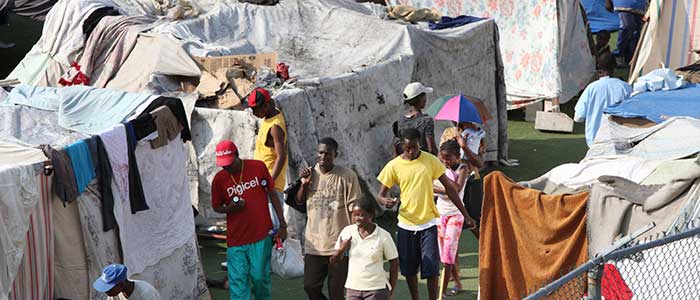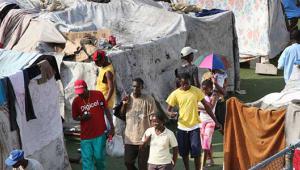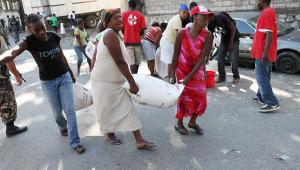Haiti earthquake camp.jpg

An internally displaced persons camp in Haiti
Since the 7.0 magnitude earthquake rocked Haiti in 2010, killing more than 200,000 and leaving at least 1.5 million homeless, about 96% of people have left camps thanks to relocation programmes and until late 2014, severe food insecurity was decreasing considerably.
However, the UN Office for the Coordination of Humanitarian Affairs said that cholera is resurging in the camps and that drought and the effects of El Niño have put food insecurity back on the rise, affecting about 3 million Haitains.
“Haiti cannot afford to become a forgotten crisis,” said Enzo di Taranto, head of the UN Office for the Coordination of Humanitarian Affairs in Haiti.
“Therefore we call for a sustained commitment to ensure that urgent humanitarian needs are addressed while sustainable actions continue.”
Vulnerability to disasters and migration issues between Haiti and the Dominican Republic have caused the situation to deteriorate further.
The Dominican Republic began a controversial citizenship policy aimed at Haitian migrants and Dominicans of Haitian descent in August, and at least 55,000 Haitians have left the country since, either due to being forcibly deported or fleeing in fear.
The OCHA noted that the news comes at a time when funding for humanitarian action has decreased significantly, endangering the important progress made to date and leading to a gradual withdrawal of humanitarian actors.
Taranto added that while the OCHA mobilised $13m from two of the UN’s emergency response funds last year, this was not enough.
The OCHA said due to the deterioration of living conditions in the camps it is calling on the humanitarian community, civil society and private sector to contribute to improve access to safe water, sanitation and medical treatment.













